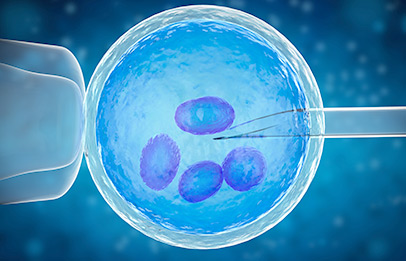What is
Donor Egg
Egg donation is when a woman (donor) gives her eggs to another woman (recipient) to allow the recipient to have a baby. To donate eggs, the donor must be given medications that will cause her to develop multiple eggs over a single cycle. The eggs are then removed from the donor by placing a needle that is attached to an ultrasound probe through the vaginal tissues. The eggs are then gently aspirated (suctioned) from the ovaries. Once the eggs are removed, they are evaluated by an embryologist. Then sperm from the male partner or a sperm bank is placed around or injected into each egg. This process is called in vitro fertilization (IVF).

Who can become an egg donor?
Egg donors are women, usually between the ages of 21 and 34, who are willing to provide their eggs to a recipient. They may be anonymous (unknown) or known to the intended parents. Anonymous donors are recruited through egg donation programs or agencies and are not known to the recipient. However, some couples find donors through advertisements. Recipients should be cautious about recruiting donors without the use of an intermediary to screen the donors and should strongly consider seeking legal counsel. Known (also called directed) donors are generally a close friend or relative of the recipient.
What tests are performed on the donor?
The donor is tested for infections such as HIV, Hepatitis B and C, gonorrhea, chlamydia and syphilis. All donors should be tested to be sure that they are not carriers of the cystic fibrosis gene. Other genetic testing should be performed based on the donor’s history and ethnic background. Some programs perform chromosome analysis and test for Fragile X syndrome; however, this testing is not required. Psychometric testing is often done as part of the mental health screening.
